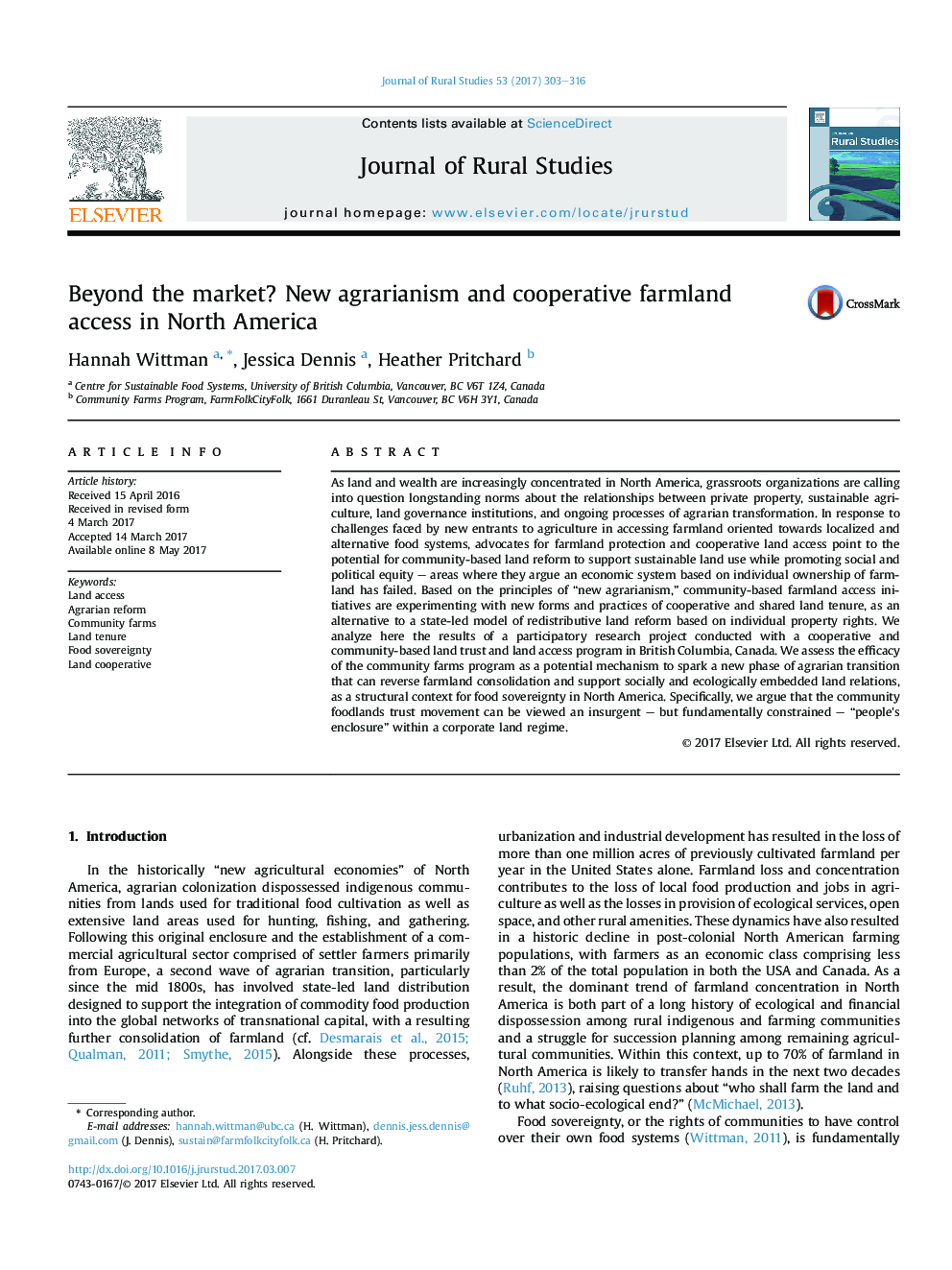| Article ID | Journal | Published Year | Pages | File Type |
|---|---|---|---|---|
| 6459976 | Journal of Rural Studies | 2017 | 14 Pages |
â¢Alternative and cooperative land access initiatives are emerging in North America.â¢Community Farms programs provide options for new agrarians to access land.â¢Cooperative land access can provide an insurgent context for food sovereignty.â¢Preferences for private property co-exist within diverse and alternative economies.
As land and wealth are increasingly concentrated in North America, grassroots organizations are calling into question longstanding norms about the relationships between private property, sustainable agriculture, land governance institutions, and ongoing processes of agrarian transformation. In response to challenges faced by new entrants to agriculture in accessing farmland oriented towards localized and alternative food systems, advocates for farmland protection and cooperative land access point to the potential for community-based land reform to support sustainable land use while promoting social and political equity - areas where they argue an economic system based on individual ownership of farmland has failed. Based on the principles of “new agrarianism,” community-based farmland access initiatives are experimenting with new forms and practices of cooperative and shared land tenure, as an alternative to a state-led model of redistributive land reform based on individual property rights. We analyze here the results of a participatory research project conducted with a cooperative and community-based land trust and land access program in British Columbia, Canada. We assess the efficacy of the community farms program as a potential mechanism to spark a new phase of agrarian transition that can reverse farmland consolidation and support socially and ecologically embedded land relations, as a structural context for food sovereignty in North America. Specifically, we argue that the community foodlands trust movement can be viewed an insurgent - but fundamentally constrained - “people's enclosure” within a corporate land regime.
